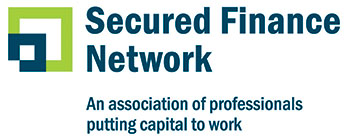TSL Feature Articles
Click on the link below to meet some of the “difference makers” in the secured finance community. This issue of The Secured Lender celebrates those who are having a profound impact on both their communities and their organizations.
Previous TSL Articles
-
SFNet WISF Career Corner
This feature provides advice from WISF members to young professionals on a specific topic. We need your input. If you have a question you would like to see answered in this column, please submit to Michele Ocejo at mocejo@sfnet.com.
-
 Interview with Heather Sonnenberg, Partner, Blank Rome
WISF Committee member Heather Sonnenberg concentrates her practice in commercial finance, with a particular focus on asset-based and cash-flow financing for various industry sectors, including manufacturing, healthcare, and other service industries. She serves a wide range of clients, including banks, commercial finance companies, mezzanine lenders, and other institutional lenders, along with private equity firms, hedge funds, and publicly and privately held corporations.
Interview with Heather Sonnenberg, Partner, Blank Rome
WISF Committee member Heather Sonnenberg concentrates her practice in commercial finance, with a particular focus on asset-based and cash-flow financing for various industry sectors, including manufacturing, healthcare, and other service industries. She serves a wide range of clients, including banks, commercial finance companies, mezzanine lenders, and other institutional lenders, along with private equity firms, hedge funds, and publicly and privately held corporations. -
 LIBOR Transition: FAQs
Oct 5, 2021
LIBOR Transition: FAQs
Oct 5, 2021Meredith Coffey of LSTA provides readers with an update on the LIBOR transition.
- When is LIBOR ending?
The UK’s Financial Conduct Authority (“FCA”) – the regulator of the ICE Benchmark Administration, the administrator of LIBOR – has said that all sterling, Swiss franc, euro and Japanese yen LIBOR settings will cease or no longer be representative after year-end 2021. The FCA also said that the settings for one-week and two-month USD LIBOR will also cease or will be non-representative after year-end 2021. The remaining USD LIBOR tenors will cease or be non-representative after June 30, 2023. Importantly, while USD LIBOR will continue to exist after the end of 2021, this is only for pre-existing “legacy” contracts. The U.S. banking regulators have said that banks should not originate new LIBOR contracts after the end of 2021.
- When is LIBOR ending?
-
 Young Professionals Need to Fail Better
Oct 18, 2021Young professionals. We need to fail better. We need to become comfortable with the idea of stumbling over obstacles. We need to stop feeling paralyzed by the anticipation of failure. Failure is not a source of shame. It is a badge of honor. It is progression. Let me explain.
Young Professionals Need to Fail Better
Oct 18, 2021Young professionals. We need to fail better. We need to become comfortable with the idea of stumbling over obstacles. We need to stop feeling paralyzed by the anticipation of failure. Failure is not a source of shame. It is a badge of honor. It is progression. Let me explain. -
 Diversity in Secured Finance: Interview with Anthony C. Hood, PhD, First Horizon National Corp.
Diversity in Secured Finance: Interview with Anthony C. Hood, PhD, First Horizon National Corp.
Nneoma Maduike, member of SFNet’s Diversity, Equity & Inclusiveness Committee interviews Anthony C. Hood, PhD, executive vice president and chief diversity, equity and inclusion officer of First Horizon National Corp. Dr. Hood is responsible for cultivating and expanding First Horizon’s strategic leadership in developing and implementing programs and initiatives that advance the Company’s Diversity, Equity and Inclusion (DEI) efforts.
-
Huntington Business Credit Provides Credit Facility for Bayloff Stamped Products Detroit, Inc.
Huntington Business Credit announced it closed a new $15,000,000 credit facility with Bayloff Stamped Products Detroit, Inc. on August 12, 2021. Proceeds of the facility were used to refinance existing indebtedness and to provide ongoing working capital growth financing.
-
 Foundation’s 2021 Individual Campaign Concludes Successfully / Corporate Drive Gains Momentum
Foundation’s 2021 Individual Campaign Concludes Successfully / Corporate Drive Gains Momentum
-
 You Can Bend Credit Criteria Only So Far Before Something Breaks
You Can Bend Credit Criteria Only So Far Before Something Breaks
The recession of 2008-2009 brought many lessons to the lending community; and the small independent finance companies were no exception. When looking back at that period, many of the lessons that we should all remember occurred in 2005-2007, during the lead up to the recession.
If you’ll recall, the economy was strong and business was booming. For small independent finance companies (that typically run counter-cyclical), new business was harder to come by and highly competitive. As is often the case, this led to aggressive structures and lower pricing, a bad combination.
-
 AI In Secured Finance
Aug 19, 2021
AI In Secured Finance
Aug 19, 2021While lenders and financial institutions are not looking to discover the next vaccine or medical breakthrough, artificial intelligence (AI) and machine learning (ML) have been reshaping traditional business processes at a rapid speed. Many decision makers in the C-Suites, while still responsible for ensuring everyday “blocking and tackling” is done, are dealing with how best to integrate AI/ML into their companies, and at what cost. This article takes a deeper dive into how AI and ML are being utilized in the industry along with the factors leaders must consider with AI/ML integration.
-
 SFNet to Host Independent Finance Roundtable August 17-19 in Chicago, IL
Aug 9, 2021
SFNet to Host Independent Finance Roundtable August 17-19 in Chicago, IL
Aug 9, 2021SFNet will be hosting part two of its Independent Finance Roundtable 2021 August 17 - 19, 2021 in-person at the Renaissance Chicago Downtown Hotel in Chicago, IL. For 2021, we created a unique, invitation-only experience for senior executives from SFNet member entrepreneurial finance and factoring companies. IFR 2021 is a two-part event. The first part on April 27 was a free, live online roundtable discussion and an overview of our August in-person agenda. Panelists and attendees will come together next week to discuss the state of M&A, legal issues impacting our industry, and other timely topics that may affect your business.
In addition to the roundtable meetings and discussions, IFR will offer optional activities to take full advantage of your time in Chicago.
The Secured Lender

SFNet's The 81st Annual Convention Issue

.jpg?sfvrsn=f1093d2a_0)
